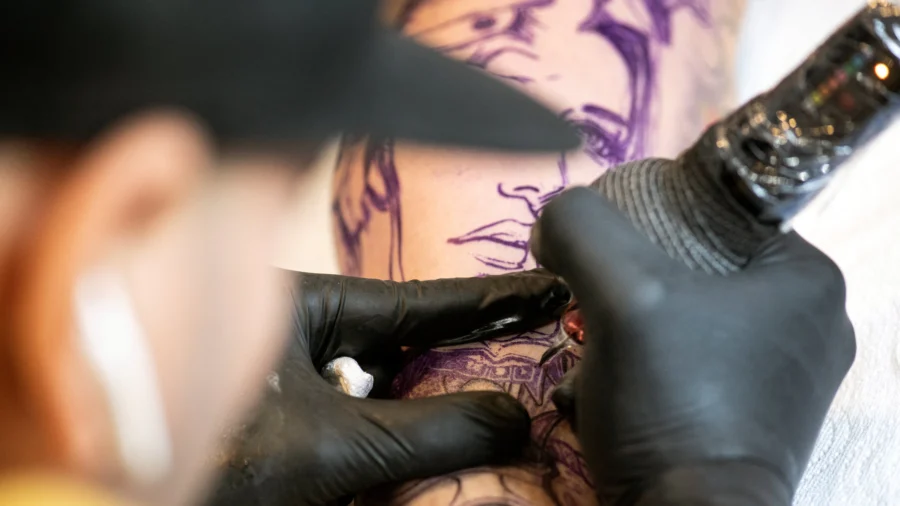A new study from a Swedish university suggests getting a tattoo, regardless of size, increases the risk of lymphoma by 21 percent.
Researchers from the University of Lund in Sweden studied the possible link between tattoos and cancer. The study’s participants were 11,905 Swedish residents, some of them lymphoma patients and some of them healthy. Tattooed people were in both groups, so a comparison could be made. Lymphoma is a type of blood cancer in the lymphatic system.
“These individuals [lymphoma patients] were then matched with a control group of the same sex and age, but without lymphoma. The study participants answered a questionnaire about lifestyle factors to determine whether they were tattooed or not,” lead researcher Christel Nielsen said in a Lund University press release.
The study first neutralized carcinogenic factors such as smoking and age. It also neutralized factors that are known to affect the association with cancer, such as socioeconomic position and general lifestyle.
The result was that there is a 21 percent higher possibility for lymphoma in tattooed people compared to non-tattooed.
“It is important to remember that lymphoma is a rare disease and that our results apply at the group level. The results now need to be verified and investigated further in other studies and such research is ongoing,” Ms. Nielsen said.
According to Lund University researchers, past research has proven that tattoo ink sinks into the skin and finds its way to the lymph nodes. The lymph nodes may exist in the armpits, neck, chest, abdomen, and groin.
Hundreds of lymph nodes in the human body function as filters for foreign substances such as bacteria and cancer cells. However, the tattoo ink contains carcinogens such as aromatic amines, polycyclic aromatic hydrocarbons, and metals that can find their way to the lymph nodes, according to the study.
According to Ms. Nielsen, the body interprets the ink as something “foreign that should not be there, and the immune system is activated.” As such, the ink—a carcinogenic substance—is retained in the lymph node filtration system.
One hypothesis of the researchers was that more tattoos on the body would result in a higher risk for lymphoma, but no evidence was found to support that.
“We do not yet know why this was the case. One can only speculate that a tattoo, regardless of size, triggers a low-grade inflammation in the body, which in turn can trigger cancer. The picture is thus more complex than we initially thought,” Ms. Nielsen said.
The researchers also found the possibility that the risk is at its highest between zero and two years after a tattoo, then it decreases and then increases again after 11 years.
In a comment to NTD, Ms. Nielsen emphasized, “It is important to keep in mind that lymphoma is a very rare disease, and that the 21 percent increase relates to a risk that is very low. For people with tattoos, it is good to be aware that tattoos might have adverse health effects, and that you should seek medical care if you experience any symptoms that you think may be tattoo related. Finally, I am convinced that we will continue to get tattoos, and that it is a societal responsibility to make sure that it can be done as safely as possible.”
“Most people get their first tattoo at a young age, which means that you are exposed to tattoo ink for a large part of your life. Even so, research has only scratched the surface of the long-term health effects of tattoos,” the university press release said.
The research group will now proceed to investigate possible links between tattoos and other types of cancer, as well as other inflammatory diseases.
“People will likely want to continue to express their identity through tattoos, and therefore it is very important that we as a society can make sure that it is safe. For the individual, it is good to know that tattoos can affect your health, and that you should turn to your health care provider if you experience symptoms that you believe could be related to your tattoo,” Ms. Nielsen concluded.
Editors note: This article was updated to include additional comments from Ms. Nielson.

